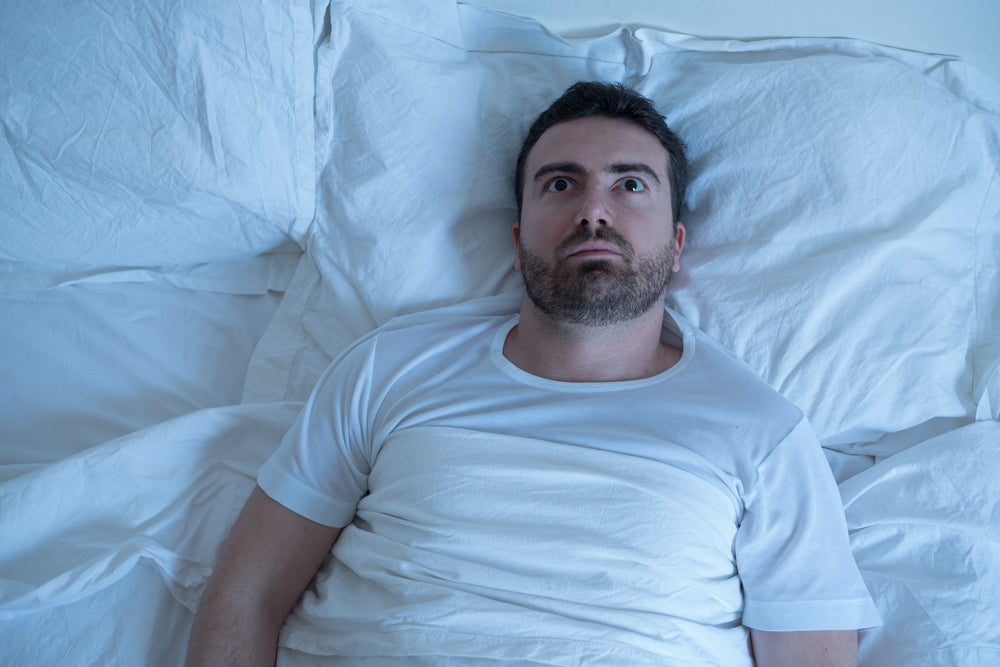Many individuals get nervous about the sleep test because they don’t know what to expect — or they stress that they won’t be able to fall asleep while attached to a device that’s monitoring their breathing. Luckily, there’s no need to worry if your doctor recommends scheduling a sleep study.
ApneaMed is here to walk you through what to expect and how to prepare for your sleep apnea test so you can feel relaxed and ready for the best possible results.
Preparing for Your Sleep Apnea Test
You and your doctor will determine which type of sleep apnea test is ideal for you. A popular choice is an at-home sleep test that allows you to self-administer the study from the comfort of your own home. Before the day of your test, the sleep study will be shipped to your home with instructions so you can feel confident and comfortable when administering it.
Even though you’ll perform the sleep test at home, you must prepare for the test to ensure everything goes smoothly. On the day of the test, follow these tips to help you fall asleep quickly and soundly:
- Wake up early in the day. Adjusting your sleep schedule ever so slightly leading up to the sleep test will ensure that your body is ready to get a good night’s sleep on the test day. This can help you fall asleep more quickly, even if you’re feeling anxious.
- Avoid eating or drinking high sugar or caffeinated treats. Whether you’re an avid coffee drinker or love a crisp Diet Coke in the afternoon, you should avoid any treats that might leave your mind racing while you try to fall asleep. Avoid caffeine after lunch.
- Find ways to burn off some energy. If you are an active person and exercise daily, continue with your routine. However, if you aren’t usually very active, it is recommended to exert some energy to tire your mind and body out before bedtime. A nice afternoon walk and some stretching are ideal.
- Get yourself in the right headspace. Use whatever tactics you usually do to get into a good headspace before bed. Maybe you love to cozy up with a good book, watch the latest series on Netflix, or chill out with some yoga. However you find your zen, it’s essential to relax your mind and body.
- Avoid looking at screens before bed. Looking at screens before bed is believed to make it more difficult for you to sleep. In the hour or two before you plan to sleep, avoid watching TV, using a computer or tablet, or looking at your phone. Instead, read a paper book, listen to music or call a friend to chat.
- Go to bed slightly later than usual. Because you will have a device attached to you when you sleep, you might not feel as comfortable as you usually do. To help distract your mind from the wires attached to you, stay up a little later than usual, so you feel more tired and a bit drowsy as you doze off.
Using any of these tactics will help you get into the right mindset before self-administering your home sleep study.
What to Do When You Can’t Fall Asleep
It’s not uncommon to have difficulty falling asleep during a sleep apnea test. Even when you’re in a comfortable environment, you still have wires attached to a monitoring device. However, you must fall asleep for the device to monitor your sleep habits so a sleep specialist can evaluate your condition.
Don’t stress out about laying flat on your back or in a particular position. When applied correctly, the wires will remain in place all night, no matter your sleeping position. This means you can toss and turn until you’re comfortable without worrying that you’re going to damage the wires or affect the study’s reliability.
Focus on relaxing your mind and body. Try listening to a meditation or practicing some breathing techniques. By focusing your attention elsewhere and releasing the built-up tension from your body, you will be able to relax your muscles and concentrate on sleeping instead of on the sleep study.
When the circumstance requires it, you have the option to take a sleeping pill to help you fall asleep and stay asleep during the night. Before doing so, consult your physician to make sure it’s allowed.
ApneaMed Provides At-Home Sleep Apnea Testing
If you need a sleep apnea test, you can perform a self-administered sleep study from the comfort of your own home. ApneaMed’s at-home sleep apnea test provides a comfortable, convenient, and affordable option.
If you have any questions about ApneaMed’s at-home sleep apnea test or our sleep apnea treatment equipment, contact our team to learn more.

